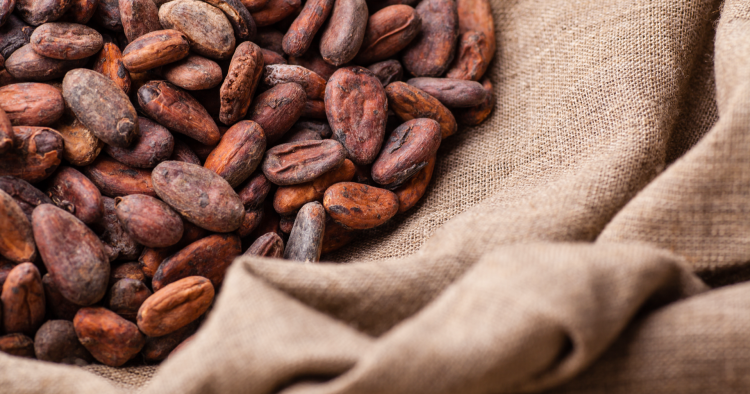
Setting the standard for cocoa excellence starts with the cocoa beans we source. As well as being of the highest quality and flavor, our cocoa is sourced responsibly in a way that is good for smallholder farmers, their families, communities and the environment.
THE BIG PICTURE
deZaan is one of the world’s leading suppliers of premium, sustainably sourced cocoa ingredients. As part of our commitment to both our chefs and farmers, deZaan has committed that our range of professional products will be produced sustainably and will contribute towards the goals of the Cocoa Compass, which is ofi’s sustainability ambition for the future of the cocoa sector.

Cocoa Compass
Aligned with the United Nations Sustainable Development Goals, Cocoa Compass sets measurable targets in the three areas in which we believe we can have the most impact: putting children first, helping farmers achieve a living income and protecting the environment.

Our Goals For 2030
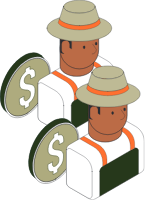
150,000
Cocoa farmers in our supplier network are achieving a living income

Child labor is eliminated from our supply chain
All cocoa farmers’ children in our supply chain have access to education

Protecting forests: create an increase in tree carbon stock
Environment: 30% reduction in natural capital costs
What We Have Achieved So Far
Although the Cocoa Compass strategy includes ambitious long-term goals, short-term objectives have been included to track progress. So far the key 2020 goals have all been achieved, including 100% traceability*, child labor monitoring in managed sustainability programs, and 100% deforestation monitoring*.
By first establishing direct supply chain traceability and putting in place these monitoring systems, Cocoa Compass now has the valuable data and insights needed to advance towards its longer-term sustainability goals.
*In ofi’s direct supply chain.

Focused On Farmers
For over sixteen years we have built close relationships with cocoa communities, giving farmers the tools they need to professionalize their practices and get the most from their farms. In 2022 alone, 72,090 (+53% compared to 2021) farmers were provided with bespoke Farm Development Plans (FDPs), which includes tailored advice on Good Agricultural Practices (GAP), inputs, and farm rehabilitation. 3.5 millions cocoa seedlings were distributed to increase yields and, therefore, incomes.
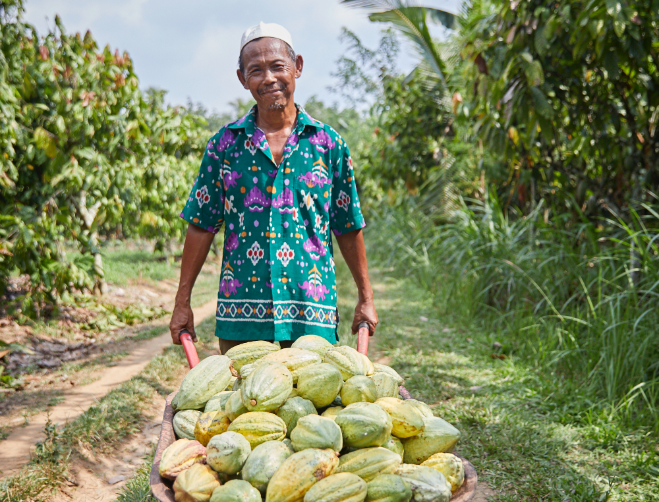
Focus on farmers
One of the Cocoa Compass goals is for 150,000 farmers to achieve a living income, which looks to provide them and their families with an income sufficient to take care of all their needs (which include housing, transport, a nutritious diet and education). This ambitious goal, which goes well beyond the poverty index, aims to develop a professional base of farmers who can provide the world with cocoa long into the future. As part of this commitment, we have started to build a detailed picture of what constitutes a living income in all nine of our sourcing countries. As a result, the first-ever living income reference values for Cameroon, Nigeria, and Papua New Guinea have now been published, as well as an updated Côte d’Ivoire level.
Armed with these benchmarks, the next stage is to determine the existing living income gaps in our direct cocoa supply chain. Find out more about how we’re tackling the Living Income Gap in our latest Cocoa Compass Impact Report.
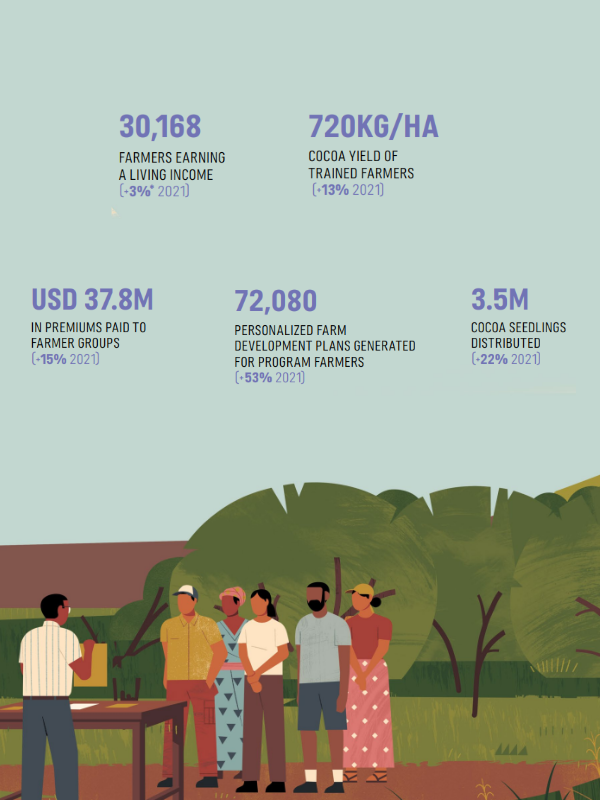
The Science That Supports Livelihoods
Our dedicated team of plant scientists and research agronomists are developing sustainable and scalable solutions to improve cocoa quality and farm productivity. In collaboration with external institutions, we have developed around 200 trials in West Africa and Indonesia that address gaps in agronomy knowledge and help us improve our recommendations to farmers in areas such as soil fertility management and pruning practices.
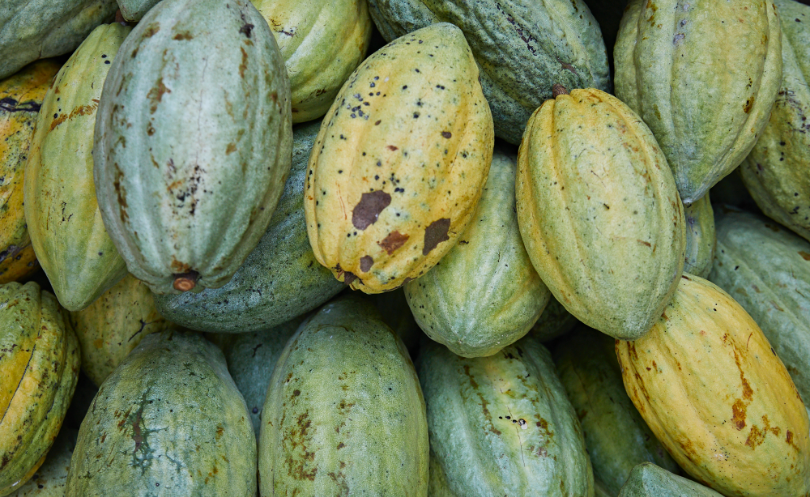
Meet Our Cocoa Farmers
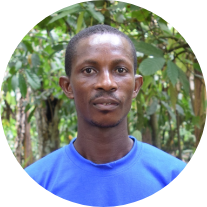

Empowered To Grow
Child labor in cocoa has no one cause. Often, there are complex and deep-rooted cultural, social and economic challenges at play. We are committed to eradicating child labor in all its forms and work with customers, partners, farmer groups and communities to deliver tailored programs that put children first.
In 2022, 89530 children received educational support (+160% from 2021).
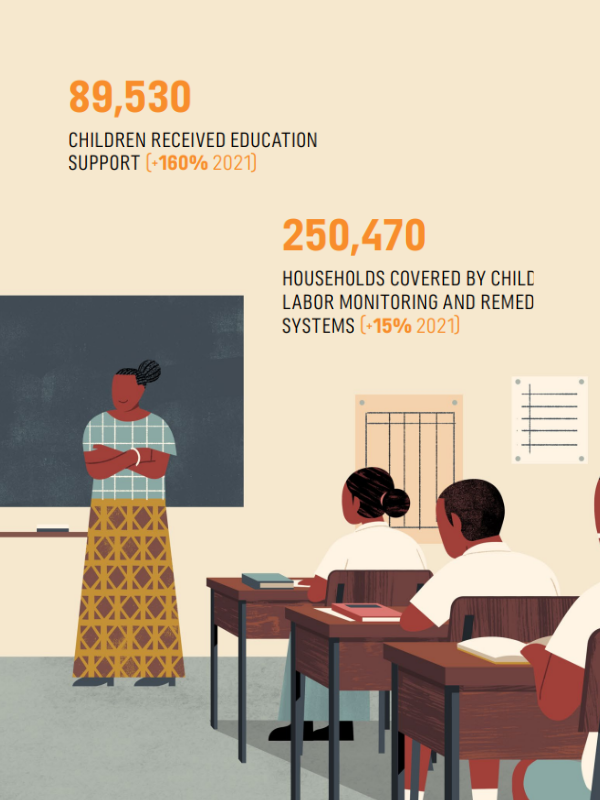
Working With Save The Children
Working collaboratively with customers, partners, and NGOs is key to tackling supply chain issues, especially ones as complex as child labor. That is why Save The Children and its Centre for Child Rights and Business were invited to assess how effectively child labor is tackled across four of ofi’s key cocoa-growing countries (Cameroon, Côte d’Ivoire, Ghana, and Nigeria).
Save The Children found the programs have real reach and impact, such as in Cameroon where 6,000 smallholder farmers have been trained in child labor sensitization, or in Ghana where 210 communities now have child protection committees.
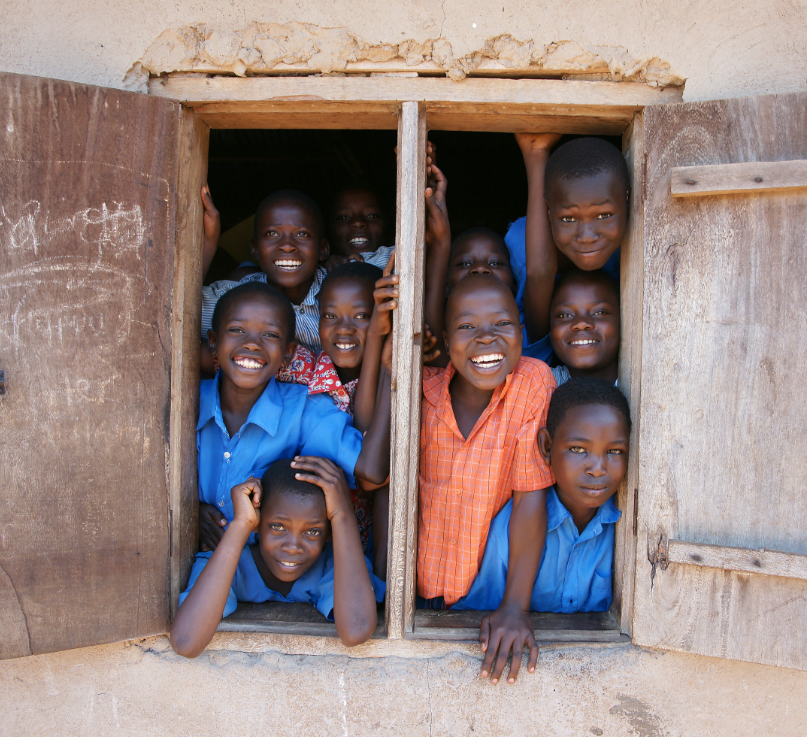
CEO Of The Centre For Child Rights & Business, Save The Children

Investing In Nature
The twin challenges of climate change and the loss of biodiversity touch every aspect of our lives, and cocoa production is no exception. We are taking a combined, proactive approach. By protecting and restoring forests and forest cover in and around our direct supply chain, we are aiming to increase tree carbon stock while improving farmer incomes.
In 2020, the goal of 100% deforestation monitoring across ofi’s global, direct supply chain was achieved. Via ofi’s Forest Loss Risk Index (FLRI), tree cover loss across nine cocoa sourcing countries is being monitored and areas at the highest risk of deforestation are able to be identified. If we find evidence of trees being cut down, we work with farmers to understand why and create a timebound action plan, including sensitization training on deforestation and agroforestry.
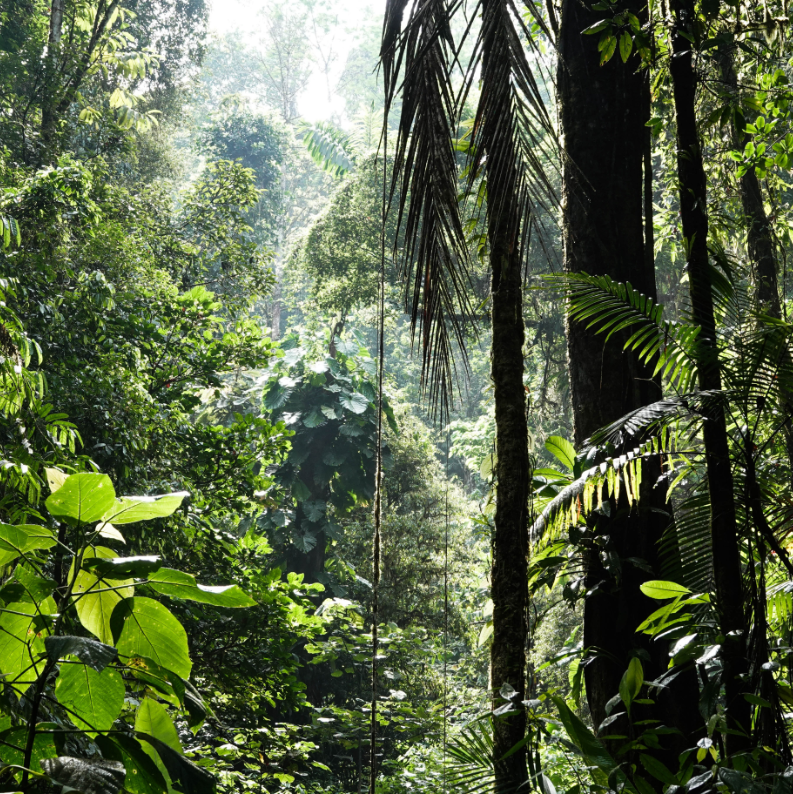
Better For The Environment
ofi has invested heavily in clean energy across its processing facilities in order to reduce greenhouse gas emissions. This includes switching from fossil fuel-generated electricity to green electricity and boilers fuelled by cocoa shells.
Our deZaan cocoa processing facilities in Wormer and Koog aan de Zaan, the Netherlands, and Mannheim, Germany, began using green electricity in 2019 and 2020, respectively. By using green electricity at these facilities, we reduced our CO2 emissions in 2020 by 46,810 tonnes.
In addition, four of ofi’s cocoa processing facilities now have cocoa shell fuelled boilers which has prevented 11,855 tonnes of CO2 from entering the atmosphere. We plan to install these in a further four facilities, saving an additional 25,320 tonnes of CO2 annually.
Find out more about deZaan and ofi’s cocoa sustainability goals in our latest Cocoa Compass report.
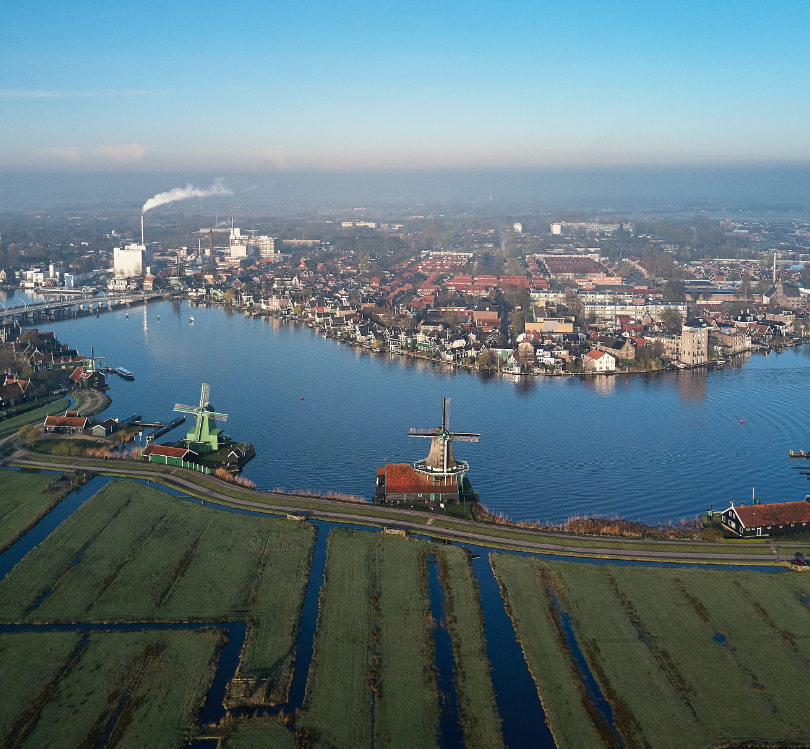
Harnessing Powerful Insights:

All of the data and insights gathered to track and report on our progress towards achieving the Cocoa Compass goals are uploaded to our insights and verification platform, AtSource. This revolutionary sustainability platform provides both a single view across all supply chain sustainability parameters, as well as providing a verification framework to assess sustainability initiatives.
